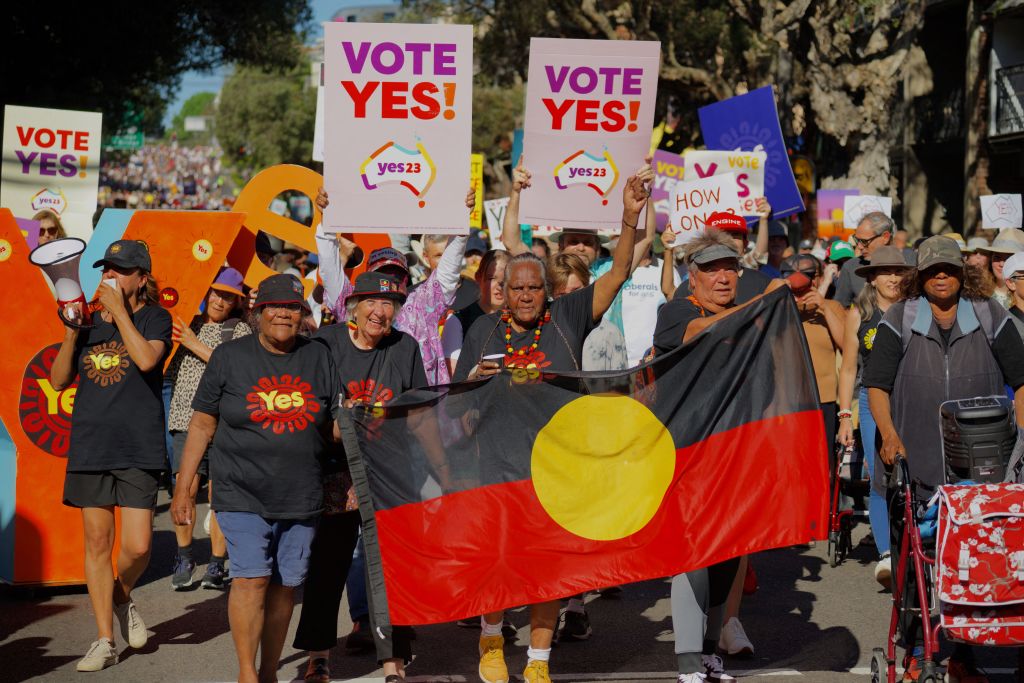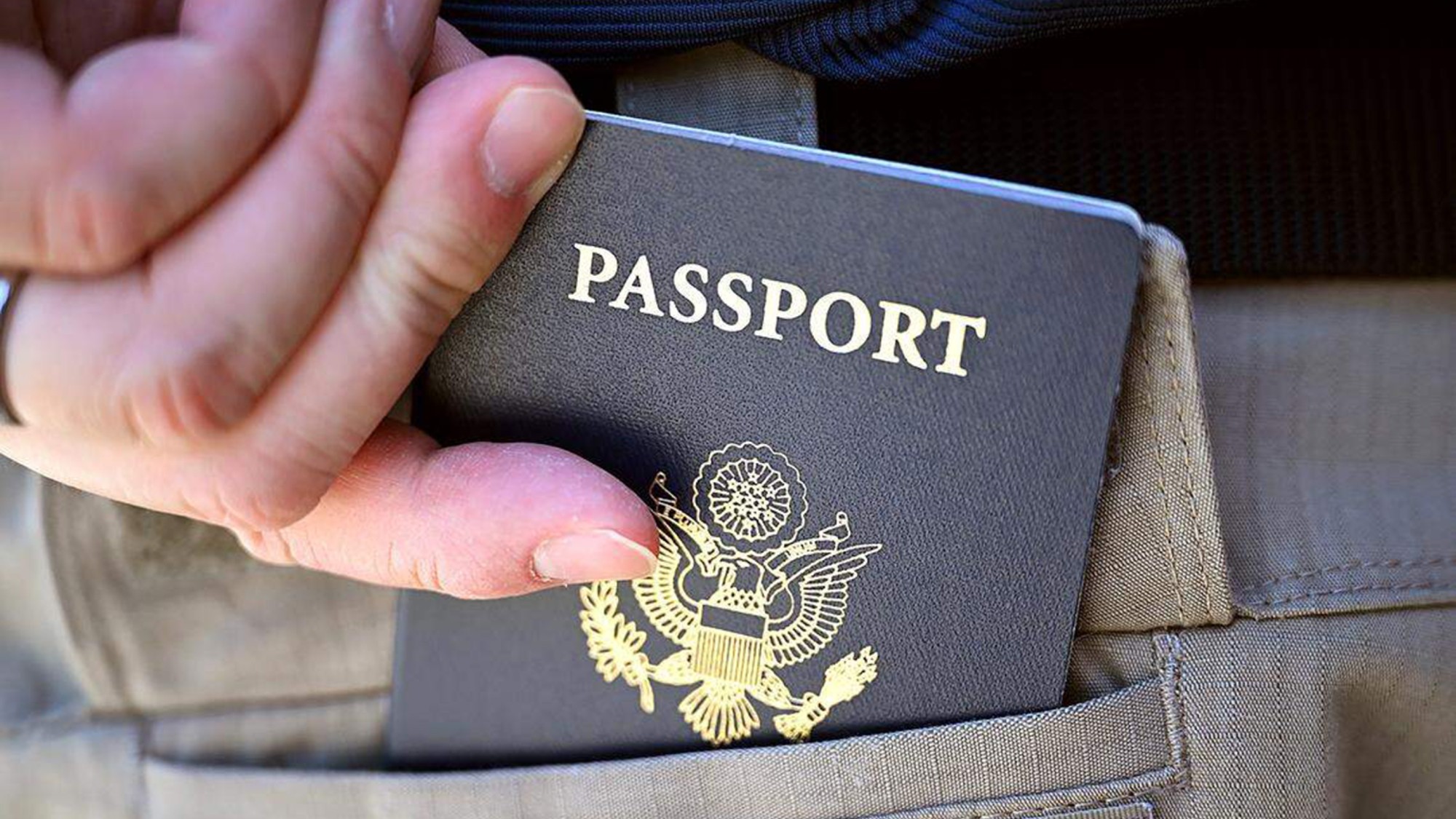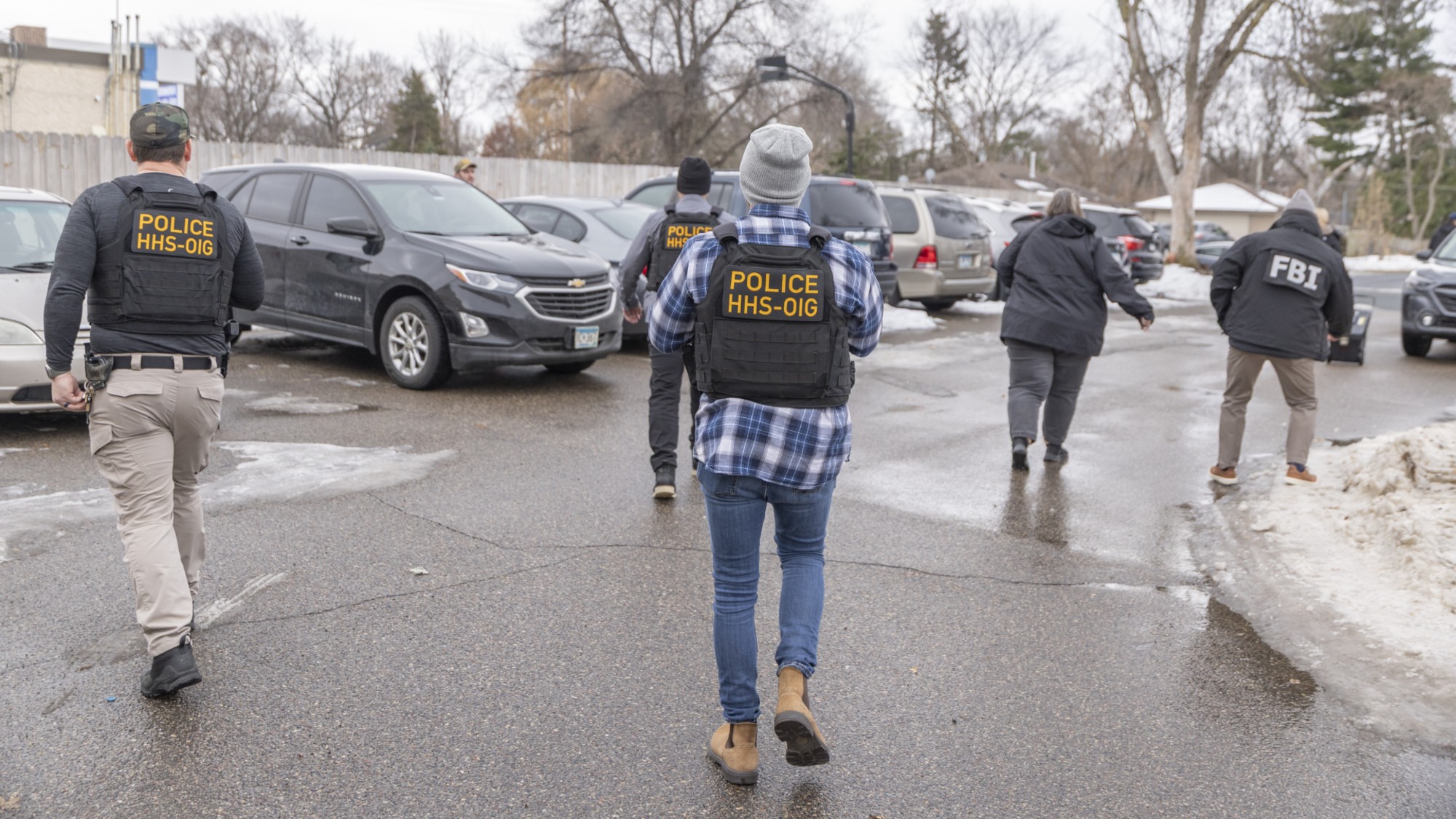The Indigenous referendum splitting the Australian public
The Oct. 14 referendum would form a federal body of Aboriginal people in Australia


A free daily email with the biggest news stories of the day – and the best features from TheWeek.com
You are now subscribed
Your newsletter sign-up was successful
A major vote is set to take place in the land down under. On Oct. 14, Australia will hold a nationwide referendum that would alter the Australian Constitution to ensure additional representation for the country's Indigenous groups.
Ever since the referendum was announced this past March, though, Aussies have appeared split on the issue. A number of recent polls have shown that the measure is more likely than not to fail. What would this referendum guarantee, and why has it become a point of contention among the Australian public?
What is the referendum proposing?
The official text of the referendum will ask if Australians want to "alter the Constitution to recognize the First Peoples of Australia by establishing an Aboriginal and Torres Strait Islander Voice." If passed, the referendum would amend the constitution to create a new federal body comprised of leaders from Australia's Indigenous groups.
The Week
Escape your echo chamber. Get the facts behind the news, plus analysis from multiple perspectives.

Sign up for The Week's Free Newsletters
From our morning news briefing to a weekly Good News Newsletter, get the best of The Week delivered directly to your inbox.
From our morning news briefing to a weekly Good News Newsletter, get the best of The Week delivered directly to your inbox.
Often referred to simply as the Voice, this body would "make representations to the Parliament and the Executive Government of the Commonwealth on matters relating to Aboriginal and Torres Strait Islander peoples," according to the wording of the proposed constitutional amendment. The amendment would also give the Australian Parliament the power to make laws "with respect to matters relating to the Aboriginal and Torres Strait Islander Voice, including its composition, functions, powers and procedures." This change would notably "recognize the land’s original inhabitants through ... a direct line to the government," CNN reported.
A double majority is needed for the referendum to pass. This means over 50% of voters nationwide and over 50% of voters in four of the six Australian states must vote "yes."
Why is this being proposed?
The referendum is the culmination of attempts by Australia's Indigenous groups to receive equal representation in government. Though they represent just "3.8% of the total Australian population," the country's Aboriginal and Torres Strait Islander people have long faced "marginalization and discrimination," Human Rights Watch reported. This includes "disproportionately high rates of incarceration and other systemic socio-economic disadvantages."
While some of these issues have improved over the years, Australia's Indigenous people have historically been subjected to "racism and the targeting of Aboriginal people, including Aboriginal youth, by police; violence against women; refusal of our land rights; and poverty," human rights lawyer Hannah McGlade told the United Nations.
A free daily email with the biggest news stories of the day – and the best features from TheWeek.com
The referendum's passage would not only enshrine the rights of the Indigenous population in the constitution, but it would additionally provide "a real chance for us to raise Indigenous human rights issues with the governments of the world and Indigenous peoples of the world listening," McGlade added.
What has the public response been?
Australian Prime Minister Anthony Albanese, who announced the referendum earlier this year, said the proposal was about creating "a voice so we can listen to Indigenous people about matters that affect them so that we can get better results," and recognizing "the privilege that we have of sharing this continent with the oldest continuous culture on earth." But it appears not everyone in Australia feels this way.
While many supporters say the referendum is necessary for reconciliation, opponents "say there's not enough information about the plan. They also say it's not clear what the plan involves," NPR reported. One politician, Jacinda Price, said the referendum fails "to actually provide any evidence whatsoever that demonstrates how it will improve the lives of Indigenous Australians," while also controversially claiming that colonialism helped Australia's Indigenous people.
Even some supporters have acknowledged that the referendum has loopholes. Kate Galloway, an academic lawyer from Griffith University, told NPR that while she backs the referendum to give Indigenous groups a voice in government, "there's no guarantee that they will be listened to."
How likely is the referendum to pass?
The referendum has been steadily losing support, according to most metrics. A Sept. 25 AFR/Freshwater poll of 1,003 people found that just 33% of respondents backed the referendum, compared to 50% who did not and 17% that were undecided. This marked "a 15-point drop since the AFR/ Freshwater poll in May," the poll noted.
Beyond this, 60% of respondents also said they felt the referendum was "detracting from the nation’s bigger priorities, like cost of living and housing." An additional 46% said the referendum had "failed to make a compelling case" for its passage.
Even if the polls aren't completely accurate, "they would need to be off by 10% or more for the yes vote to achieve the double majority necessary for the referendum to pass," The Guardian noted.
Justin Klawans has worked as a staff writer at The Week since 2022. He began his career covering local news before joining Newsweek as a breaking news reporter, where he wrote about politics, national and global affairs, business, crime, sports, film, television and other news. Justin has also freelanced for outlets including Collider and United Press International.
-
 Political cartoons for February 16
Political cartoons for February 16Cartoons Monday’s political cartoons include President's Day, a valentine from the Epstein files, and more
-
 Regent Hong Kong: a tranquil haven with a prime waterfront spot
Regent Hong Kong: a tranquil haven with a prime waterfront spotThe Week Recommends The trendy hotel recently underwent an extensive two-year revamp
-
 The problem with diagnosing profound autism
The problem with diagnosing profound autismThe Explainer Experts are reconsidering the idea of autism as a spectrum, which could impact diagnoses and policy making for the condition
-
 How ‘Manchesterism’ could change the UK
How ‘Manchesterism’ could change the UKThe Explainer The idea involves shifting a centralized government to more local powers
-
 ‘Dark woke’: what it means and how it might help Democrats
‘Dark woke’: what it means and how it might help DemocratsThe Explainer Some Democrats are embracing crasser rhetoric, respectability be damned
-
 San Francisco tackles affordability problems with free child care
San Francisco tackles affordability problems with free child careThe Explainer The free child care will be offered to thousands of families in the city
-
 The Mint’s 250th anniversary coins face a whitewashing controversy
The Mint’s 250th anniversary coins face a whitewashing controversyThe Explainer The designs omitted several notable moments for civil rights and women’s rights
-
 US citizens are carrying passports amid ICE fears
US citizens are carrying passports amid ICE fearsThe Explainer ‘You do what you have to do to avoid problems,’ one person told The Guardian
-
 Inside Minnesota’s extensive fraud schemes
Inside Minnesota’s extensive fraud schemesThe Explainer The fraud allegedly goes back to the Covid-19 pandemic
-
 Trump wants to build out AI with a new ‘Tech Force’
Trump wants to build out AI with a new ‘Tech Force’The Explainer The administration is looking to add roughly 1,000 jobs
-
 ‘It’s hard not to feel for the distillers’
‘It’s hard not to feel for the distillers’Instant Opinion Opinion, comment and editorials of the day
